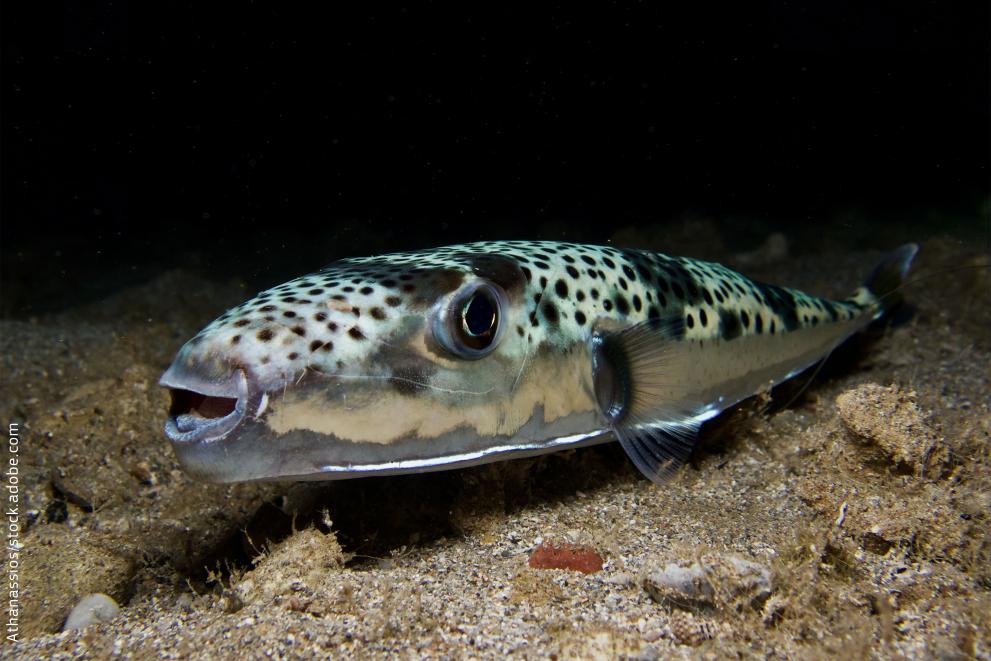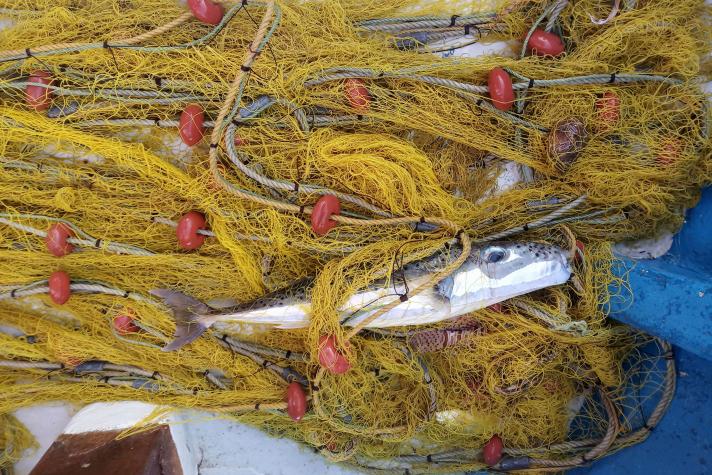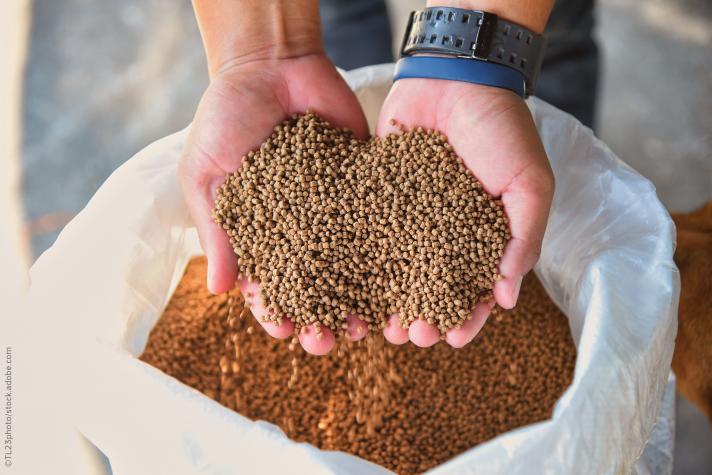
When the Suez Canal was opened 150 years ago, it brought many positive aspects for travel and trade. But it also opened a channel (pun intended) for the mass migration of invasive marine species from the Indo-Pacific region, with significant, and generally negative repercussions for the biodiversity of the sea basins concerned.
The pufferfish, originating from the Red Sea, is one of the most harmful invasive species now present in the Mediterranean Sea.
The EU-funded LagoMeal project managed to create a commercial fishery for this invasive species that used to have no commercial value.
LagoMeal brought together a team of experts from various national institutions and the private sector. Together they used the European Maritime and Fisheries Fund (EMFF) to develop a process to deactivate a powerful nerve toxin and turn deadly pufferfish into high-quality fishmeal.
An invasive species and dwindling fishmeal supplies
The pufferfish Lagocephalus sceleratus is related to the infamous fugu of Japan, and like its distant cousin, it has no predators because it is highly poisonous.
Pufferfish is a considerable threat to the environment and fisheries. An opportunistic predator whose numbers are growing fast, the pufferfish damages fishing gear and catches and eats native species. Greek fishers claim that the pufferfish damage to their nets alone can cost them each more than €5,000 a year.
In parallel, the expansion of aquaculture has increased demand for aquafeed. This puts pressure on the fishmeal supply, especially when traditional sources are being over-exploited. Fish farmers urgently need new sources of fish protein.
Greece, for example, currently has only five fish feed production plants, with an annual production of approximately 250,000 tons worth €300 million. The country’s aquaculture industry currently needs to import a further 50,000 tons of fishmeal annually, costing around €70 million.
A win-win solution
Dr. I. Negas, the project scientific responsible, said: “The best way to control an inevitable invasion of an unwanted aquatic population is to create a value for it. By making it valuable you increase the incentive – and the efforts – to collect it.”
By heat-treating the pufferfish to remove the deadly toxin, the project partners believed they could create a profitable market for this otherwise unloved invader. Local fishers would have a new target species, aquaculturists would benefit from lower feed prices, and Lagocephalus numbers would fall.
Trials showed that cooking pufferfish at 160°C deactivates the poison to levels safe for human consumption, while at 200°C it disappears. Feeding trials were also encouraging, showing that European sea bass grow well when pufferfish fishmeal replaces up to 30% of conventional fishmeal in their diets.
The project’s business plan looked at a small plant to process 1500 tons/year of pufferfish producing 250 tons/year of fishmeal and 100 tons/year of fish oil. Over ten years the annual return on investment was estimated at 15-25%, depending on the extent of compensatory measures for fishers.
On this basis, processing pufferfish would be an attractive investment for aquafeed producers, and help aquaculture producers reduce costs. The ability to produce local fishmeal with a stable composition, high nutritional value and competitive price could have significant benefits for the industry, and a commercial fishery would help control the Lagocephalus sceleratus populations.
Looking forward
EU funding allowed this innovative project to start the process of sourcing alternative protein for fishmeal production, and prove the basic process at lab and pilot scale.
The project also helped the Hellenic Centre for Marine Research (HCMR) and its partners establish connections with coastal fishers, gaining trust for future collaborations and research programmes.
This newly acquired knowledge and expertise, together with the obtained fishmeal production equipment, will give HCMR opportunities to participate in new related EU, national and industrial research and innovation projects.
More information
Website of the project (in Greek)
Website of the Hellenic Centre for Marine Research
EU Funding for maritime, fisheries and aquaculture projects: EMFAF
Video: LagoMeal: finding a solution for invasive species (long version)
LagoMeal: finding a solution for invasive species (Short version)
Details
- Publication date
- 22 December 2023
- Author
- Directorate-General for Maritime Affairs and Fisheries






